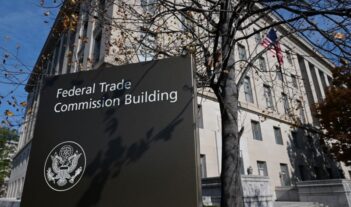
Scholars urge policymakers to regulate green gatekeepers to reduce greenwashing.
A growing number of Americans want to purchase sustainable products and invest in environmentally responsible companies. Yet almost 60 percent of executives admit that their organizations are overstating their sustainability efforts.
Under these conditions, how can environmentally conscious consumers make informed choices?
According to three scholars, “green gatekeepers”—organizations that certify environmental claims about products and companies—could be the solution.
In a recent working paper, law professors Luca Enriques at Oxford University, Alessandro Romano at Bocconi University, and Andrew F. Tuch at Washington University School of Law contend that green gatekeepers can mitigate the information asymmetries between firms and consumers. They warn, however, that green gatekeepers face weaker reputational constraints than traditional gatekeepers, making them more likely to issue inaccurate certifications.
Enriques, Romano, and Tuch propose a regulatory framework to improve green gatekeepers’ accountability.
According to a recent survey, over 80 percent of consumers are willing to pay more for sustainably produced or sourced goods. Eager to capture this premium, some companies engage in “greenwashing”—the practice of falsely portraying activities, products, and services as more environmentally friendly or sustainable than they truly are.
Earlier this year, a class action lawsuit was filed against the activewear company Lululemon for greenwashing. The complaint alleges that the brand made misleading claims about its environmental sustainability practices through its “Be Planet” marketing campaign. Contrary to Lululemon’s initiative, the compliant claims that the brand’s greenhouse gas emissions have more than doubled since it launched this campaign.
Greenwashing falls within the jurisdiction of the Federal Trade Commission (FTC), which regulates deceptive marketing practices. The FTC has issued “Green Guides” to help marketers avoid making misleading environmental claims, although this guidance is not legally binding.
The Securities and Exchange Commission (SEC) also protects investors from false environmental claims or omissions made within registration statements. The SEC adopted a rule recently that requires public companies to make climate-related disclosures, such as material climate-related risks and their greenhouse gas emissions. The SEC, however, has stayed implementation of this rule pending the outcome of various lawsuits challenging its legality.
Enriques, Romano, and Tuch argue that the FTC and SEC’s regulations have inadequately deterred firms and have failed to protect consumers. They claim that “FTC enforcement against firms has been extremely limited, as the Commission lacks expertise in environmental matters and is reluctant to be seen as setting environmental policy.”
In addition, companies can often circumvent SEC regulations by disclosing environmental claims in other materials not regulated by the SEC or framing these claims as projections to evade liability, explain Enriques, Romano, and Tuch.
This lack of oversight over environmental claims has adverse effects on the environment, state Enriques, Romano, and Tuch. They explain that, if firms are able to charge consumers higher prices without implementing green strategies, they have no incentive to do so. Furthermore, well-intentioned consumers may purchase illegitimate green products instead of supporting companies that are actually making a positive impact on the environment.
Enriques, Romano, and Tuch contend that green gatekeepers can help environmentally conscious individuals make sustainable choices. These organizations provide certifications that verify the accuracy of a company’s environmental claims.
For example, A Greener World provides certifications to help consumers make informed food purchasing decisions. To receive one of its certifications, farmers must abide by various standards it sets and undergo an audit at least once a year to ensure their compliance.
Enriques, Romano, and Tuch assert that the financial success of traditional intermediaries rests on their reputation, which disciplines their conduct and gives them “less of an incentive to deceive.” They argue, however, that green gatekeepers face weak reputational risks for several reasons.
First, consumers are unable to identify inaccurate green certifications because of the complexity of the issues underlying them.
Second, consumers have little incentive to verify these certifications because they do not experience an immediate repercussion or personal loss when they accept inaccurate certifications.
Finally, consumers receive utility, or a “warm glow,” from purchasing a product or investing in a company that they believe is sustainable, even if the actual environmental benefits are questionable. As a result, consumers will rarely investigate the validity of certifications and withhold business from certifiers, explain Enriques, Romano, and Tuch.
To address this issue, Enriques, Romano, and Tuch propose a regulatory framework that classifies green gatekeepers based on the verifiability of their certifications and the significance of private costs on users. From this framework, they propose different policy strategies to regulate green gatekeepers appropriately.
For instance, when a green gatekeeper has both low verifiability and low private costs, Enriques, Romano, and Tuch suggest imposing transparency requirements, such as required disclosures, to improve policymakers’ ability to verify its certifications over time.
As more Americans view climate change as a top national priority, green gatekeepers can play a crucial role in keeping consumers informed and incentivizing firms to adopt genuine green strategies. Given green gatekeepers potential impact, Enriques, Romano, and Tuch propose a policy framework to deter inaccurate green certifications.



